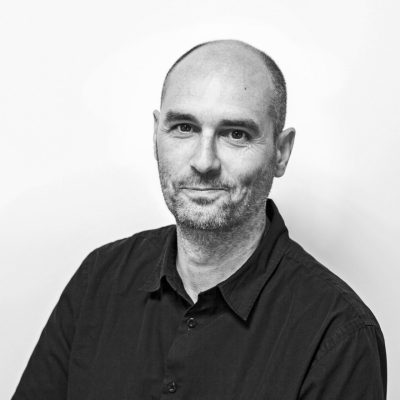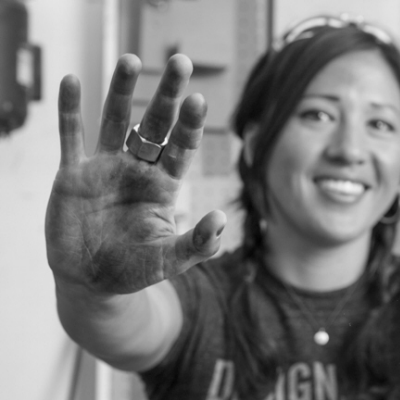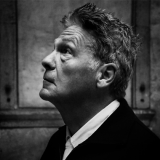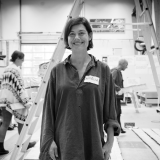It is with much gratitude and admiration that we celebrate the jury alumni members of the Core77 Design Awards.
- All Categories
- A/V & Photography Equipment
- Apps & Platforms
- Branding & Identity
- Built Environment
- Commercial Equipment
- Consumer Product
- Consumer Technology
- Crowdfunding
- Design Concept
- Design Education Initiative
- Design for Social Impact
- Emerging Technologies
- Furniture & Lighting
- Gaming Accessories
- Health & Wellness
- Home & Living
- Interaction
- Lifestyle Accessories
- Open Design
- Packaging
- Personal Accessory
- Robotics
- Service Design
- Speculative Concept
- Speculative Design
- Sports & Outdoors
- Sports & Recreation
- Strategy & Research
- Sustainability
- Tools
- Tools & Work
- Toys & Play
- Transportation
- Visual Communication
Jury Alumni

Fabio Sergio
Vice President of Design, frog design
2017 Design for Social Impact Jury Member
Fabio Sergio is Vice President of Design at frog, the global design and innovation firm.
He works across a wide spectrum of industries and sectors, with global leaders such as Vodafone, GE, HP, LGE, BBC, J&J, Swisscom, Novartis, Merck, UNICEF, The Red Cross and the World Economic Forum. Fabio is part of frog's global Design Leadership team, the head of frog's Social Impact Design practice, one of the firm's healthcare experts and one of its User Experience Strategy leads. He helps to advance frog's capabilities, processes and methodologies.
Fabio is passionate about exploring areas at the intersection of design, technology and human aspirations, wrapping business scenarios around people's desires and dreams.
He often speaks at worldwide events, including The Economist Technology Frontiers, The Guardian Mobile Summit, The Aspen Design Summit, SXSW, The Unicef Innovation Summit, Stanford Mobile Health, NEXT Berlin, LIFT Geneva. He is a professor at Politecnico di Milano, and a guest lecturer at Domus Academy, Copenhagen Institute of Interaction Design and SUPSI's Master of Advanced Studies in Interaction Design.
Deanna Van Buren
Co-Founder, Designing Justice Designing Spaces
2017 Design for Social Impact Jury Member
Deanna is the co-founder of Designing Justice Designing Spaces, a nonprofit harnessing the power of design and development to transform people and communities. After starting her first company in 2011 she became a national leader in formulating and advocating for restorative justice centers, a radical transformation of justice architecture. Her passion for exploring the intersection of design and culture has been fueled by her work as a design lead on urban design, institutional and education projects in the bay area, Europe, Asia and the Middle East. Recent projects with DJDS include the Syracuse Peacemaking Center in New York and Restore, a multi-use hub for restorative justice and work force development in east Oakland. Deanna is currently conducting the first design studios with incarcerated students, and is a recent awardee of the Rauschenberg Artist as Activist grant to develop a prototype mobile resource village. Deanna received her BS in Architecture from the University of Virginia, M. Arch from Columbia University and is an alumnus of the Loeb Fellowship at Harvard’s Graduate School of Design.

Emily Pilloton
Founder, Project H
2016 Design for Social Impact Jury Captain
Emily Pilloton is the founder of the nonprofit Project H Design. Since 2008, she has run Project H and worked with young people ages 9-18 to bring the power of design and building to schools and communities. Emily is trained as an architect with degrees from UC Berkeley and the School of the Art Institute of Chicago, but found that she is physically incapable of working in an office or for a boss and much prefers the creative chaos of a public school classroom filled with tools and welding equipment. Project H Design was born out of the hope that authentic, on-the-ground, face-to-face work with young people could transform what it means to be a design professional, what it means to learn in the 21st century, and what it means to get dirty and physically build solutions for your community.
Specifically, Emily launched 2 Project H programs: Studio H, an in-school design/build curriculum, and Camp H, an after-school and summer building camp for young girls ages 9-13. Exploring the intersection of science, art, math, and community development, Emily has led Project H youth in the design and construction of an award-winning 2,000-square-foot farmers market structure, chicken coops, playgrounds, their own school library, microhomes for the homeless, laser-etched skateboards, and welded steel public sculpture.
Emily believes that by giving youth, particularly girls and students of color, the skills to design and build their wildest ideas, we can support the next generation of creative, confident changemakers. Her ideas and work have made their way to the TED Stage, The Colbert Report, the New York Times, and more. Her work is the subject of the full-length documentary If You Build It. She is the author of two books, Design Revolution: 100 Products that Empower People, and Tell Them I Built This: Transforming Schools, Communities, and Lives with Design-Based Education. Emily is also a Visiting Professor in the Department of Design at UC Davis.
John Bielenberg
Partner, Future Partners
2016 Design for Social Impact Jury Member
John Bielenberg is a designer, entrepreneur, and imaginative advocate for creating a better world through the application of creativity and ingenuity. John co-founded Future Partners, a Silicon Valley Innovation firm, in 2012 to teach Rapid Ingenuity Practices to individuals, teams, and organizations around the world. In 2001, John co-founded C2 Group, a brand strategy firm, to help leaders from technology start ups, Fortune 500 companies, and the world’s top business management consulting firms develop, build and protect their brands. In his career, John has won more than 250 design awards, including the AIGA (American Institute of Graphic Arts) Gold Medal for lifetime achievement.

Maria Guidice
VP of Experience Design, Autodesk
2016 Design for Social Impact Jury Member
Innovator, artist, protagonist, and positive provocateur, Maria has pursued a vision of intelligent, elegant, people-centered design throughout her professional life. Her grasp of the pragmatic, the authentic, and the essential have kept her at the forefront of design and business for over 25 years.
Under Maria’s leadership, Hot Studio, the experience design firm she founded in 1997, grew into a full-service creative agency with an impressive list of Fortune 500 clients. In March 2013, Facebook acquired the talent behind Hot Studio. In 2015, she joined Autodesk as VP, Experience Design. Her latest book, Rise of the DEO: Leadership by Design, is published by New Riders. Maria is an AIGA Design Fellow. She has spoken at conferences all over the world and currently serves as an adjunct professor and trustee at California College of the Arts in San Francisco. Maria is a mom to two amazing teenagers, and just recently, was ordained as a Minister at the Universal Life Church.
John Thackara
Director, The Doors of Perception
2015 Design for Social Impact Jury Captain
For thirty years, John Thackara has traveled the world in his search of stories about the practical steps taken by communities to realize a sustainable future. He writes about these stories online and in books; he uses them in talks for cities and business; he also organizes festivals and events that bring the subjects of these stories together.John is the author of a widely-read blog atdesignobserver.comand of the best-sellingIn the Bubble: Designing In A Complex World (MIT Press) û also translated into nine languages. As director ofdoorsofperception.com, John organizes conferences and festivals in which social innovators share knowledge.John is a Senior Fellow of the Royal College of Art, in London, and a Fellow of The Young Foundation, the UK's social enterprise incubator. He sits on the advisory boards of the Pixelache Festival in Helsinki, the Future Perfect festival in Sweden, and Design Impact in India. He is also a member of the UK Parliament's Standing Commission on Design.Earlier, John edited the magazine Design for five years, and was later Modern Culture Editor of Harpers & Queen, and design correspondent of The Guardian. He then started a conference and exhibition company ,with offices in London and Tokyo, which created and organised events at the Pompidou Centre, Victoria & Albert Museum, Axis Gallery in Tokyo, and other venues. From 1989-1992, John was Director of Research at the Royal College of Art.Among John's 12 books are Design After Modernism: Beyond the Object (1987) andLost in Space: A Traveller's tale (1995). He has lectured in more than forty countries.

Babitha George
Partner, Quicksand
2015 Design for Social Impact Jury Member
Babitha George is a Partner at Quicksand and leads multiple innovation projects within Quicksand. Her prior work in education in India prompted her to actively think about the role of design thinking in social impact contexts, leading her to steer several of Quicksand's social innovation projects, especially in the use of technology in education and vocational training contexts, to improve learning outcomes and create more engaging & transformational learning environments. She is a management graduate from IIM Ahmedabad, prior to which she studied English, Journalism & Psychology and with this background, Babitha believes strongly in the strength of multi-disciplinary approaches. Her core skills are in design strategy and research as it pertains to conceptualizing products and services that promote sustainability and quality of life, especially for low income communities.Babitha is one of the co-founders of the UnBox Festival. She is also on the Advisory Board of the Victor Papanek Foundation and was recently featured in the British Council's 'Blurring the Lines' exhibition in London, as one of sixteen people from around the world who are reinventing creative exploration and participation in their respective communities.

Dr. Mathilda Tham
Design Professor, Linnaeus University
2015 Design for Social Impact Jury Member
Dr Mathilda Tham's work sits in a positive, activist space between design, futures studies and sustainability. Her research explores how design can intervene at the level of paradigms to support futures of sustainability. She uses design research as activism by staging and facilitating participatory and interdisciplinary workshops for critical and creative envisioning. Mathilda's current research themes include metadesign, post-growth fashion, peace, and gender.As Professor in Design, Linnaeus University, Sweden, she leads the development of a new research platform Curious Design Change. She is a member of the board of Mistra (The Foundation for Strategic Environmental Research, Sweden). Mathilda Tham is a metadesign researcher, co-convenor of MA Design Futures and Metadesign, and PhD supervisor at Goldsmiths, University of London. Mathilda's latest publication Routledge Handbook for Sustainability and Fashion, co-edited with Kate Fletcher, is now out.

Gill Wildman
Co-Founder and Director, Plot Studio
2015 Design for Social Impact Jury Member
Gill has pioneered the use of design in strategy and innovation for 20 years. She was educated as a designer at Manchester Metropolitan University; has an MA in Design Innovation and Strategy from Brunel University; and recently held Carnegie Mellon School of Design's Nierenberg Chair for 2 years.Her early career was as a researcher and developer of public services in play, youth and social action contexts. This used a people-centered practice of connecting local needs, networks and agencies called the community development approach.She created the design strategy agency Plot in 2004 after four years as a Design Manager at the UK Design Council. Plot has provided innovation labs, workshops and consultancy for a wide variety of public, private and third sector clients at different stages of their lifecycle.Right now, Gill's attention is focused on Upstarter the nomadic design-led incubator she has founded. It's mission is to stimulate embryonic enterprises using strategic design thinking, innovation and design methods. The Upstarter programme is active with partners in London, Bristol and Barcelona, and helps bring a mix of social, commercial and creative industry startups to life.